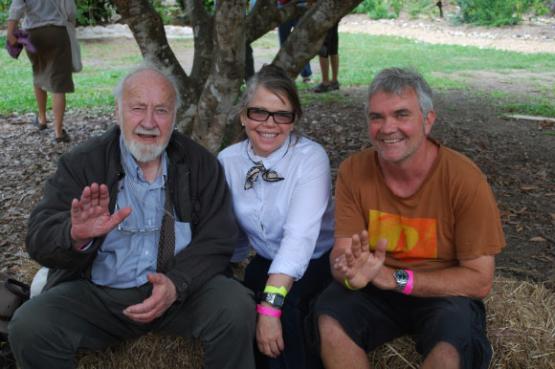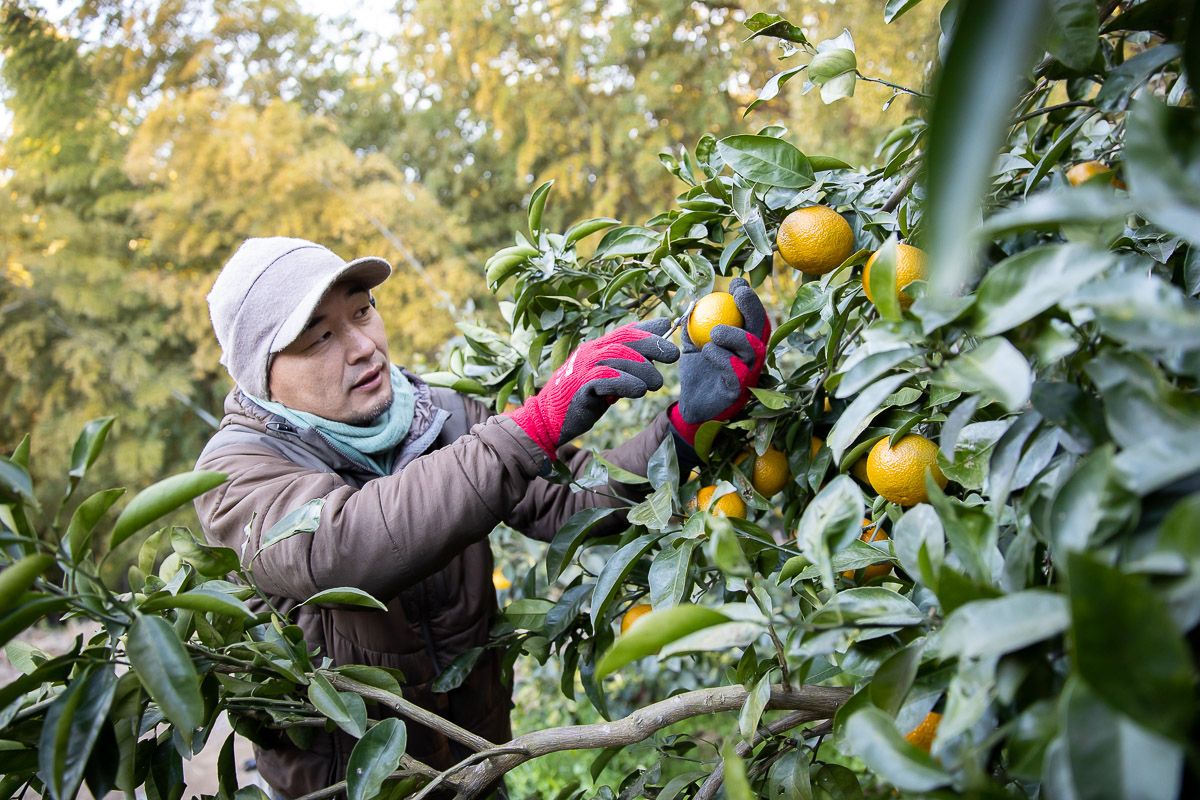
ALIVE! Hiroki Fukuoka - How to farm without farming
7 min read
Hiroki is the grandson of the late Masanobu Fukuoka, a Japanese farmer and philosopher who wrote the seminal book 'The One-Straw Revolution', which has been translated into 30 languages around the world. The 10-hectare family farm, Fukuoka Masanobu Natural Farm, is located in the Shikoku Region in southwestern Japan. Join him live at Alive!
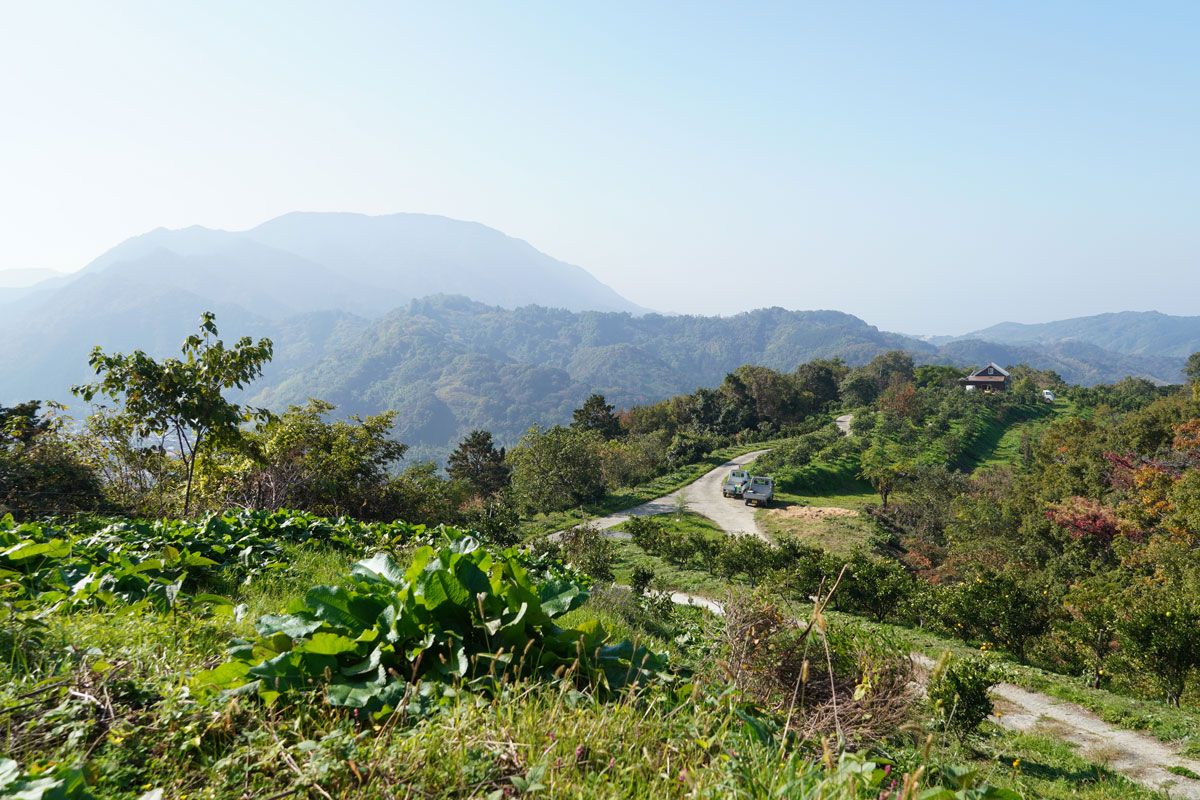
What are your memories of Masanobu? What kind of man was he? Any favourite anecdotes that you would like to share?
From a child's perspective, I think he was an ideal grandfather. I think Masanobu valued the key phrase “Nature is God”. During the day, he would take me to his mountain. I remember the time we were playing around scribbling and as I ran out of paper I said “Grandpa the paper is finished” to which he replied “then write on your legs”. So my mother was shocked watching me coming back from the mountain with my legs fully scribbled.
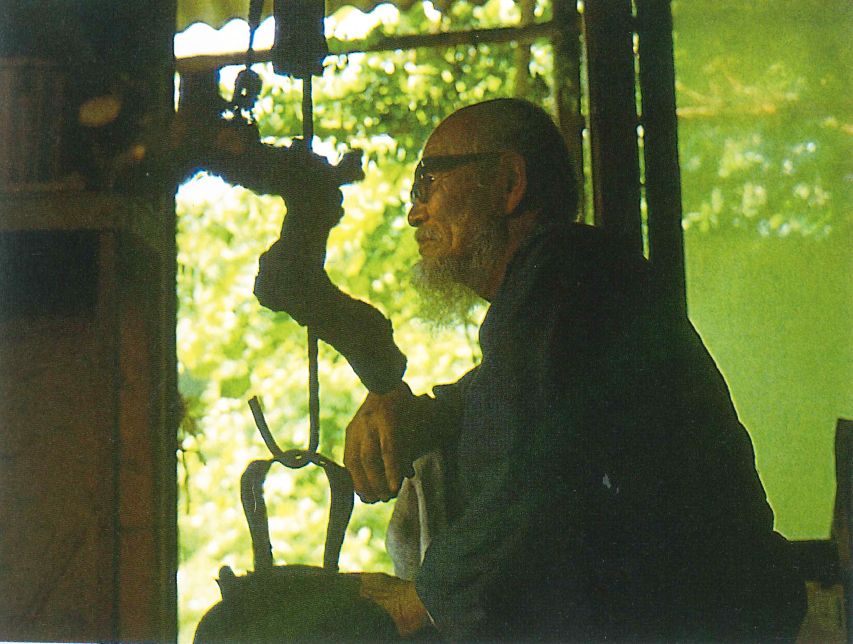
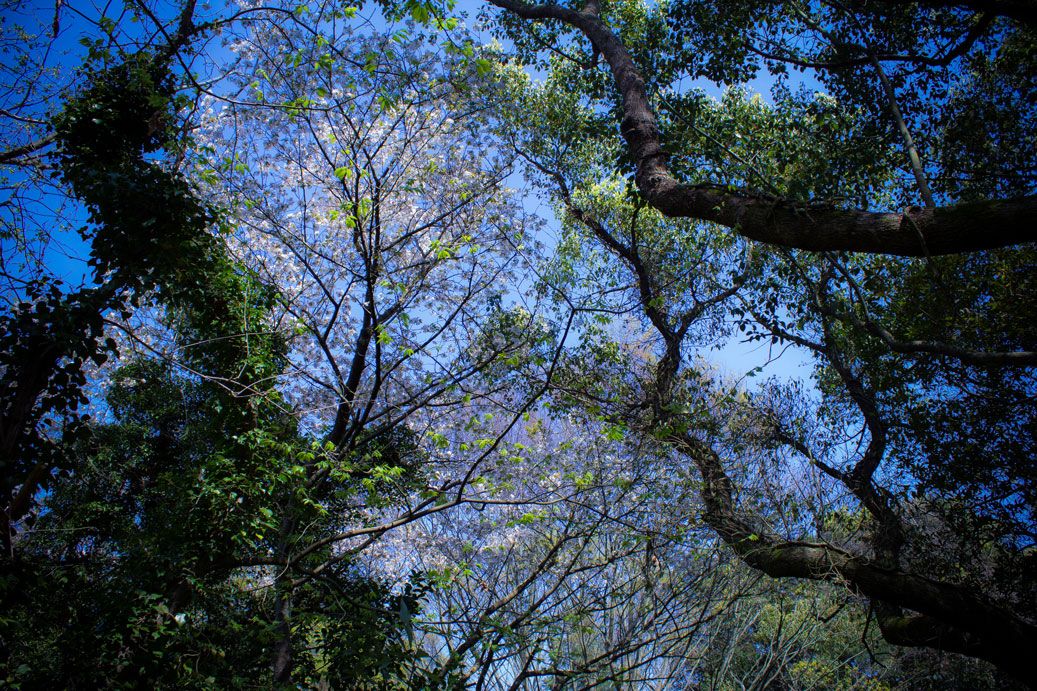
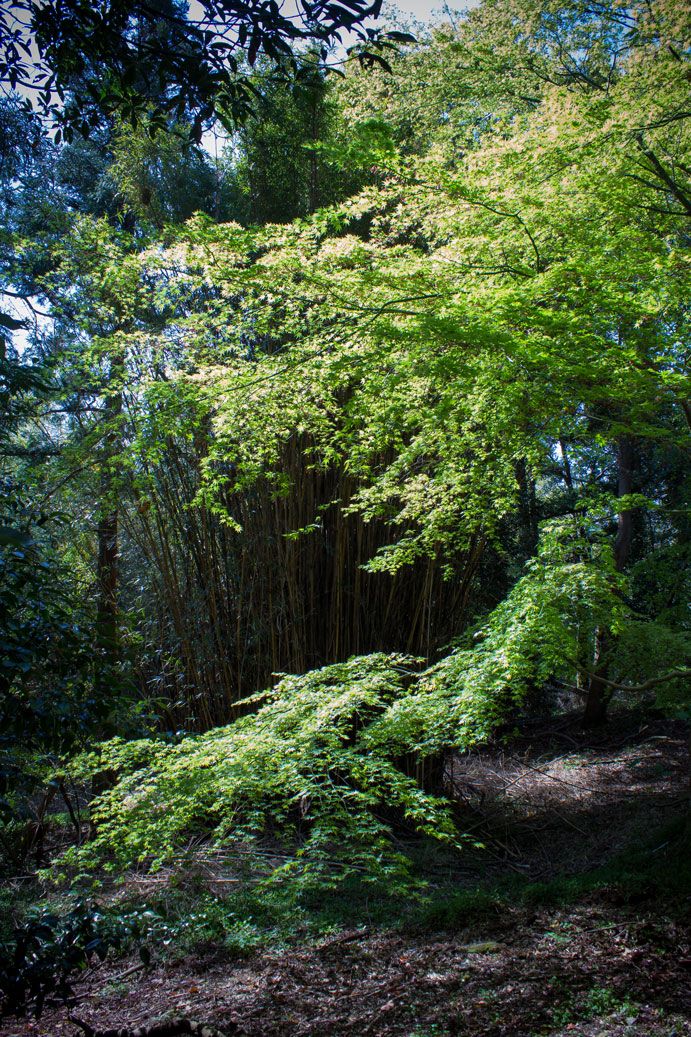
At night, I liked sleeping with my grandfather rather than sleeping with my parents and siblings and I loved listening to old tales in my futon every night.
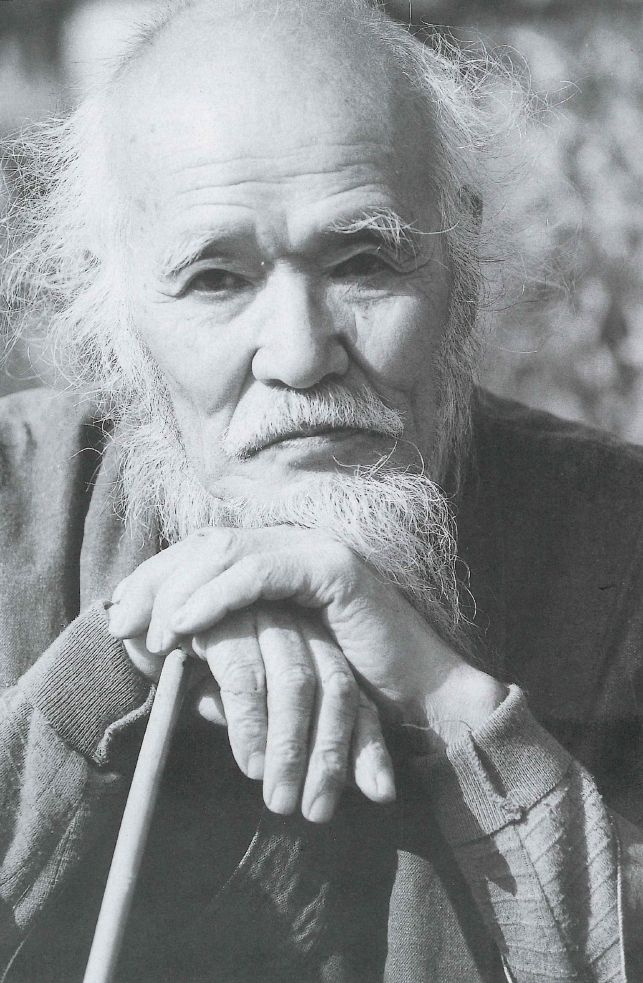
What my grandfather often used to say was "No one understands the essence of natural farming." Of course, he also meant to include me and my father in that 'no one'. The essence of natural farming is a "philosophy of nothingness", and it is difficult to understand natural farming without understanding this concept, which is a feeling and almost spiritual in nature. He kept writing books to tell everyone, but when he read the book and talked to the people who visited the farm, they didn't get it at all.
I think he realized the truth of "nothingness" when he suffered from a major illness in his adolescence. He had been given a very grave diagnosis and was wandering by himself in the dark woods when he suddenly spotted a bird in a clearing, and it was like a eureka moment for him. He chose "agriculture" as a method to express this experience, this feeling he had had with the natural world, and he advocated "natural farming" as a philosophy. If was almost more of a spiritual quest for him. Even if he found a good way to grow rice, the next year he would be chasing new possibilities with a completely different cultivation method. It is an attitude/behaviour that is difficult for ordinary people to understand, but I think it is appropriate to describe Masanobu as an "inquirer" rather than a "farmer" because of such behaviour that really disregarded his livelihood. He valued the pursuit of this natural state more than he valued earning a living.
Being alone with my grandfather, when he died, I remember being surrounded by a calm face and air. What spread to my heart was not the feeling of loss of my family, but the excitement. It was as if an old tree in the forest stopped sucking water little by little and died. It seemed to embody natural life and death. This was the Masanobu I saw and knew.
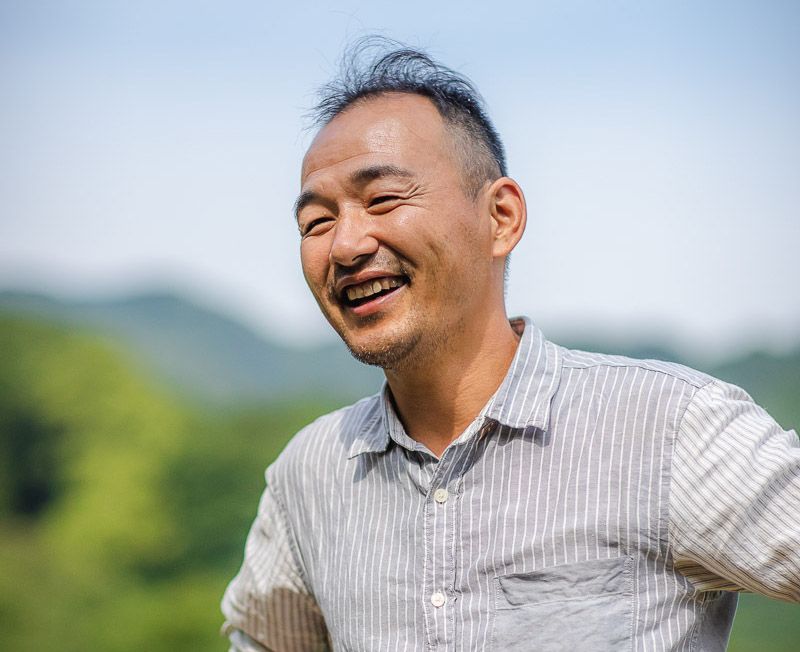
How would you summarise his philosophy?
The philosophy of nothingness is very difficult to describe. Nature is just nature – it is a perfectly balanced, self-generating unit in its entirety, and we are part of it - so nothing is needed since it is already there, it exists. However, when we as humans choose to farm, we interfere, it is not really natural. So it's about trying to be as close to the natural state as possible. Of course, as a farmer he had to do something - but the ambition was really to intervene as little as possible and try to get close to the earth. It’s more like a feeling. Masanobu didn’t like it that people were trying to find a reason; he preferred that people tried to feel it. You can’t explain everything. Nature is nature. You have to accept it. Everything is happening because of nature.
How has the farm developed since the time of your grandfather? What have you adapted - and why?
Around 1960 - as a result of my grandfather's approach - the Fukuoka family's household was in financial difficulties. My father Masato, who is Masanobu’s eldest son, was in a hurry to rebuild his household.
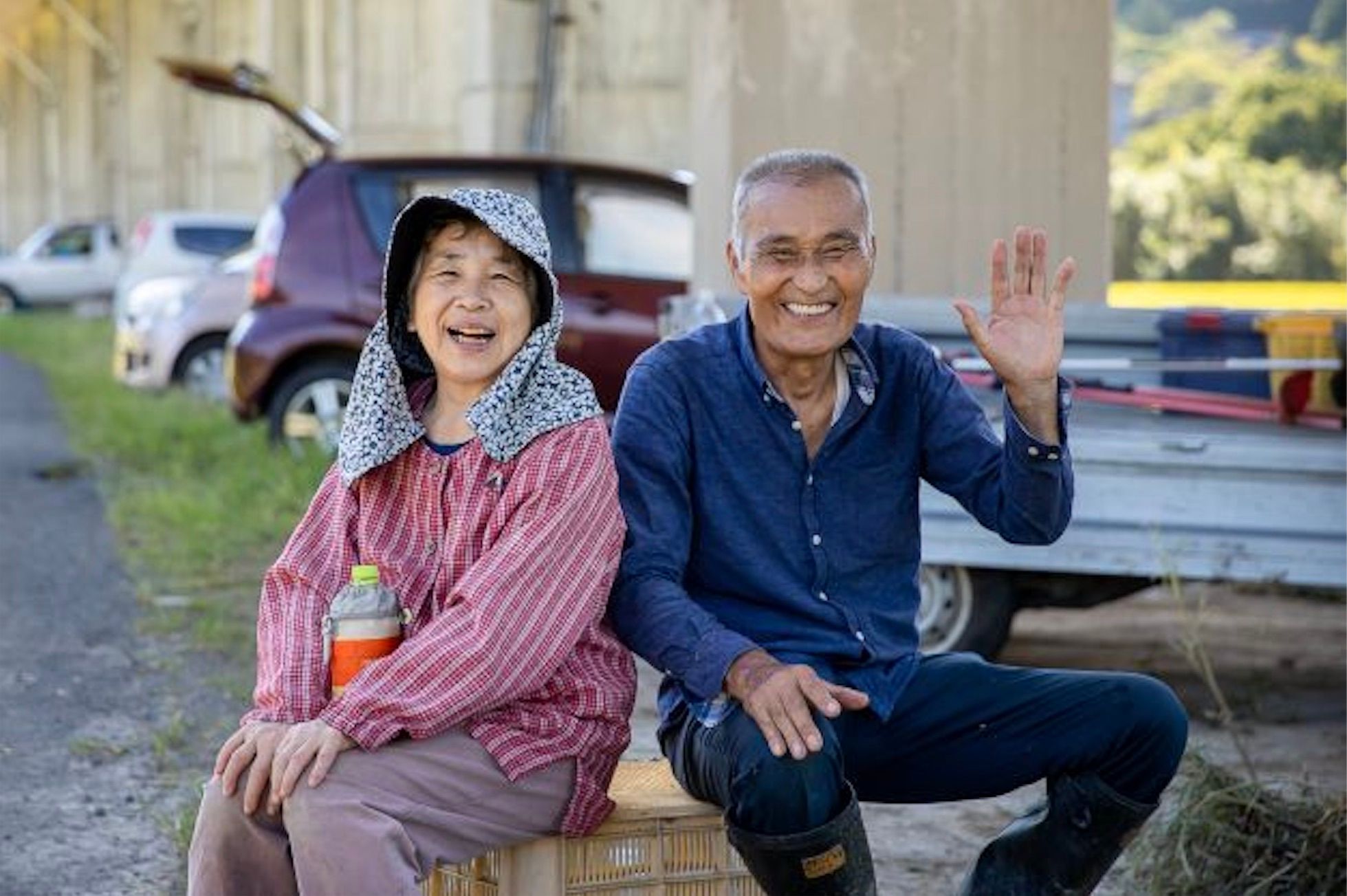
At first, he used the same cultivation method as the conventional farmers in the surrounding area. But as he looked closely at the natural farming method of his father he shifted to a farming method based on the natural farming method.
First of all, he drastically reduced the use of organic pesticides. The effect was immediately apparent. He reduced to zero in the coming years.
We are now growing 6ha of citrus fruits, 2ha of rice and wheat, 1ha of other fruit trees, and 0.1ha of vegetables. In addition, there is a plot of about 1ha where Masanobu had been practicing natural farming for a lifetime where we do the minimum maintenance - only a few days a year.
In this special place the condition of only minimal stepping on the soil still holds, respecting Masanobu’s initial intention. It radically changed from a wasteland after the war to a vegetable field, and also to a field where fruit trees and vegetables were mixed. And now, it is transformed into a splendid forest with a mixture of fruit trees and miscellaneous trees.
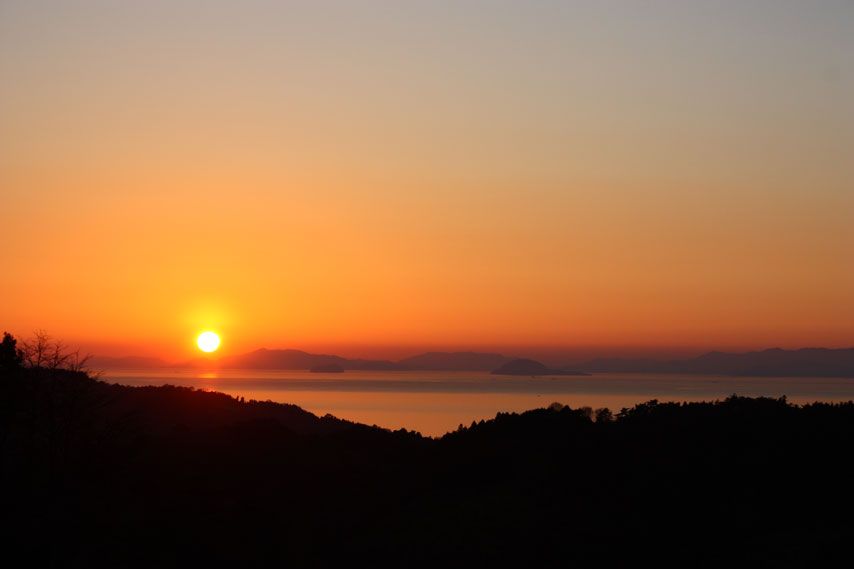
Can you give some specific examples of your approach to farming - and how that compares to a conventional farmer?
It has been 18 years since I inherited the farm from my father. I am making small adjustments in a fluid manner to the agricultural work . Also, while the main focus is on continuing as a farm, I consider the questions: "How would it change in the natural environment?", "How can we get closer to nature beyond the reach of human intelligence?". This is the perspective we value and is important for us.
For example, if a mandarin orange that we used to sell previously becomes difficult to sell due to its appearance, we will try to improve its appearance by carefully removing dead branches, and if the taste is unacceptable, we will also consider changing work approaches such as improving the sunlight. I am conscious of embodying it with actions that are as close to nature as possible. Below I will introduce the rough process using an orchard as an example.
The act of creating an orchard where the intervention of the human knowledge is necessary is already unnatural from the outset. During the sapling period, we weed just enough to prevent them weakening. At the same time, vegetable seeds are sown in the empty spaces to increase the diversity as much as possible.
Later, other fruit trees and miscellaneous trees will be planted together in order to stabilize the field. If it stabilizes, it will go back to a natural forest. (It's like protecting wild animals and returning them to the wild).
While assuming such a series of processes, I work every day in agreement with fields, plants and animals. I am very happy to hear comments such as "The produce of the Fukuoka family are delicious." However, it is also true that I am careful not to be influenced by those words. This is because there are many ways to improve the taste, but it often forces the crop to be unnatural, and I feel that it takes it far from nature.
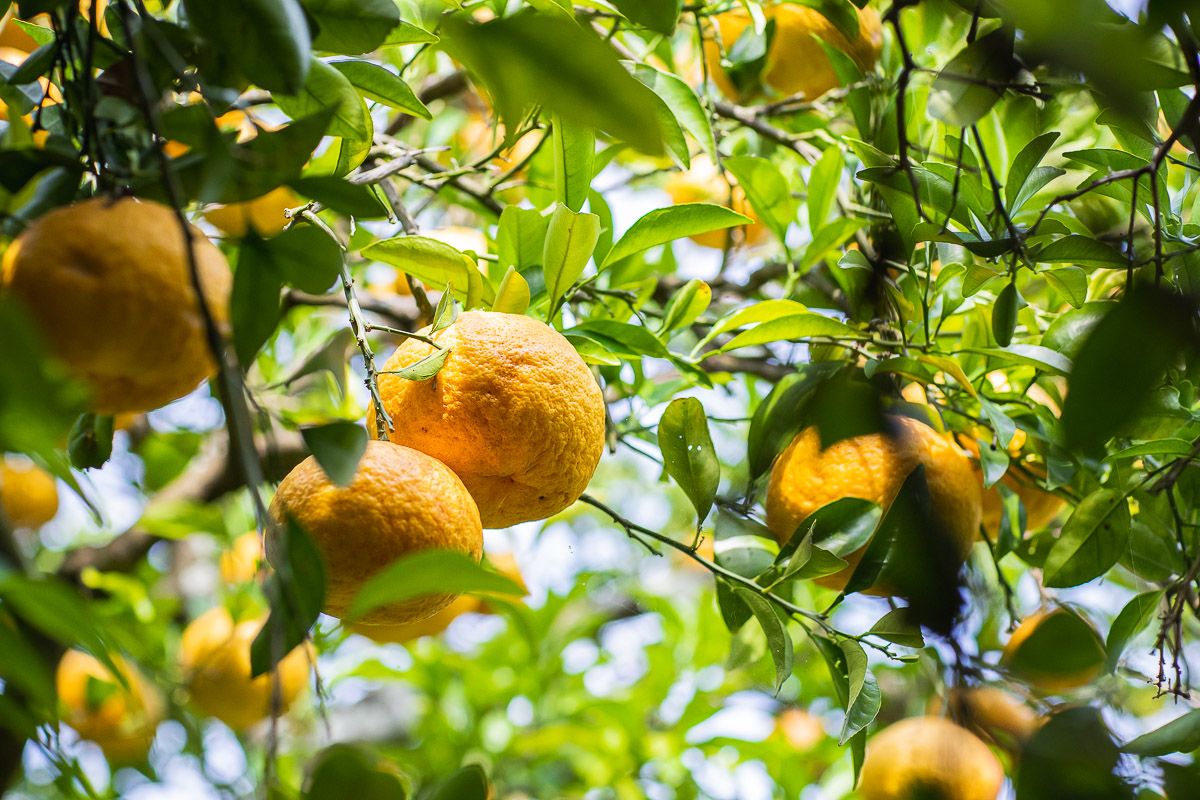
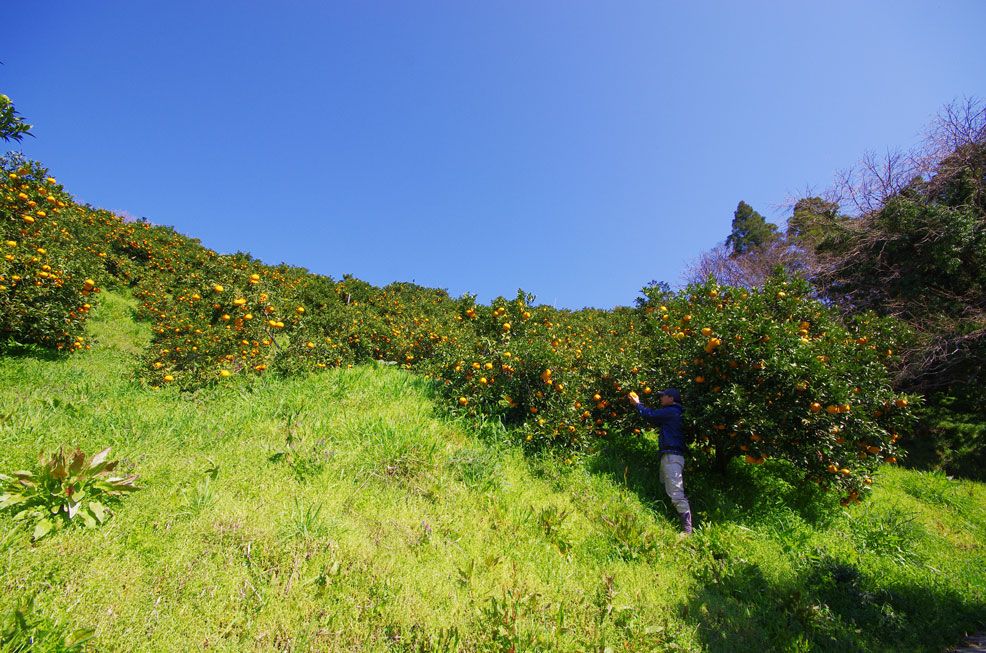
Is there a strong demand for organic produce in Japan?
From my point of view, Japan's organic farming will increase moderately in the next half century, but I am afraid that it will be a difficult phase for a little more time. I feel that there is little strong support for farmers who are serious about organic farming. The essence of natural farming is not "safe food" or "environmentally friendly production". It is a farming method that can be practiced by understanding the "natural reason", how to bring out the original vitality of the plant and how to rotate it without interrupting the cycle of circulation. And I think that it shows the "way of life" of how people should live.
I do not think that all farmers should practice natural farming, but I think that the perspectives of "what nature is" and "what it should be" are necessary at the root of the concept of agriculture. Looking back on history, various philosophers, religions, and politicians have been searching for how people live from their respective positions and perspectives. If natural farming leads to the truth, environmental problems and food safety will naturally be solved, and a new way of life will be born.
Many people have tried natural farming so far, but it is very difficult to make a living while pursuing the ideal, and many people are frustrated in the middle of the road. In a capitalistic society that emphasizes the "look, taste, and uniformity" of agricultural products, the space for agricultural products produced by natural farming are extremely narrow.
What are your plans for your farm?
It is to gradually separate the fields that are being cultivated from management and convert them to my ideal natural farm. There is almost no work required, and the reduced effort is to be used to create new fields. I am always looking forward to the rest of my life and how much I can increase such fields.
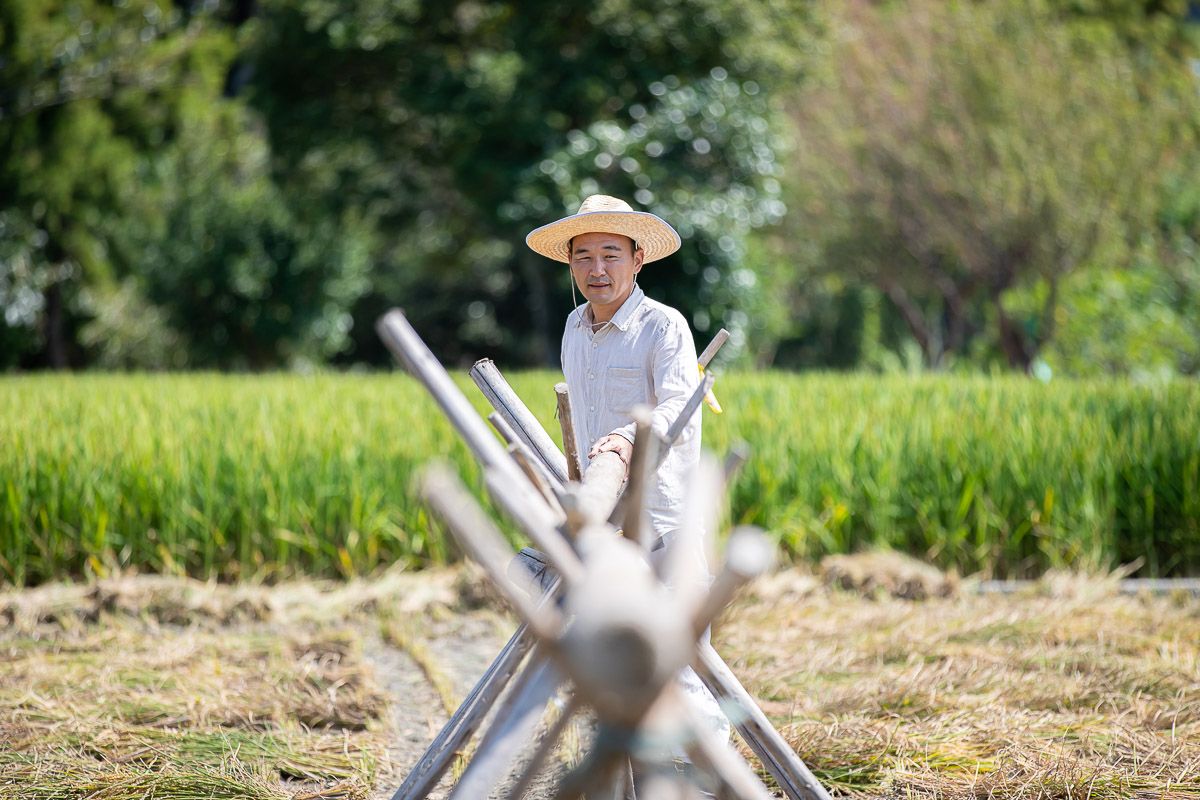
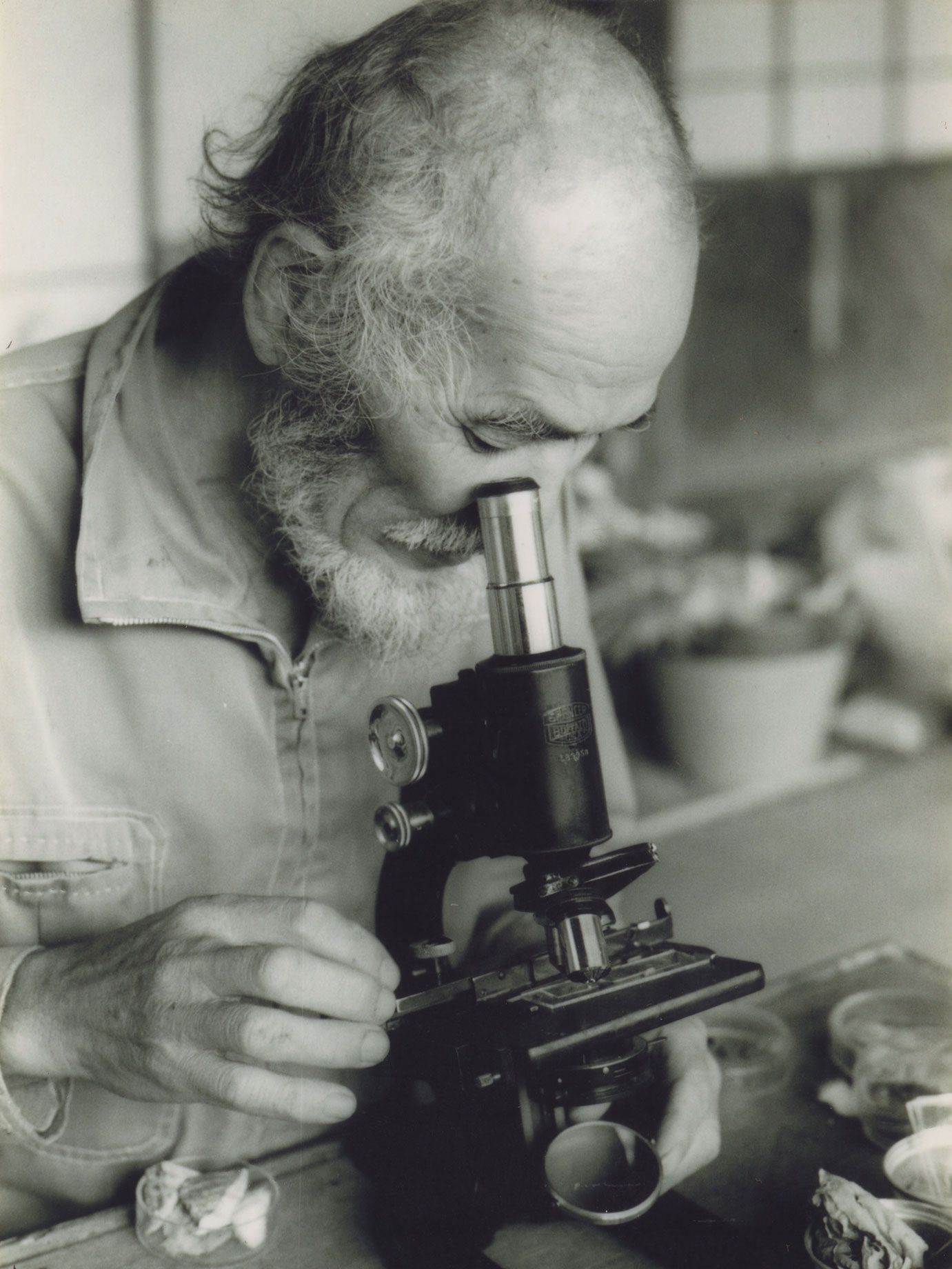
All photos are the property of Hiroki Fukuoka and must not be reproduced without the family's express consent.

